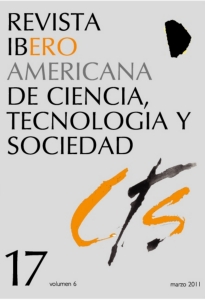Social perception of science
Utopy or distopy?
DOI:
https://doi.org/10.52712/issn.1850-0013-764Keywords:
social perception of science, social representations, scientific cultureAbstract
We live in the era of knowledge, enjoying its successes and fearing its risks. In spite of the enormous amount of scientific information generated every day, scientific illiteracy in our society is alarming as evidenced in the increase in the diffusion of pseudo-sciences, sects, or bogus science that attempt to manipulate world populations by taking advantage of their scientific ignorance. At the core of this paradox is the incapacity of the population to evaluation and distinguish between scientific knowledge and bogus science, between the potential of science and its risks. The last educational opportunity of those who do not study science to learn and analyze scientific topics in a critical way is at the high school or preparatory school level. This article explores the conceptions that high school students have of science and scientists. The results show an ambivalence that could be the reflection of their inability to distinguish and evaluate knowledge versus a simple opinion or a fallacy.
Downloads
References
ÁLVARO, J. L. y GARRIDO, A. (2003): Psicología social: perspectivas psicológicas y sociológicas, Madrid, Mc Graw Hill.
DOMÍNGUEZ-GUTIÉREZ, S. (2006): “Las representaciones sociales en los procesos de comunicación de la ciencia”, CTS+I - I congreso Iberoamericano de Ciencia, Tecnología, Sociedad e Innovación, Palacio de Minería, 19 al 23 de junio de 2006, pp.1-11.
GARCÍA, J. M. y FAZIO, M. E. (2008): “Percepciones, imaginario y apropiación social de la ciencia y la tecnología: comparaciones entre España, la Unión Europea y Estados Unidos”, en J. A. López y F. J. Gómez (eds.): Apropiación social de la ciencia, Organización de Estados Iberoamericanos para la Educación, la Ciencia y la Cultura (OEI) / Biblioteca Nueva, 318 páginas.
GIANNETO, E. R. A. (1985): “Il crollo del concetto di spazio-tempo negli sviluppi Della física quantistica”, en G. Boniolo (ed.): Aspetti epistemologici dello spazio e del tempo, Roma, Borla, pp. 169-224.
IBÁÑEZ, T. (2003): Psicología social construccionista, Guadalajara, Universidad de Guadalajara.
JARA, S. (1987): “Hacia una educación científica”, Revista Ciencia y Desarrollo, nº 72, pp. 67-75.
MÁRQUEZ, E. y TIRADO, F. (2009): “Percepción social de la ciencia y la tecnología de adolescentes mexicanos”, Revista Iberoamericana de Ciencia, Tecnología y Sociedad -CTS, vol. 1, nº 2, pp. 16-34.
MOSCOVICI, S. (1979): El psicoanálisis, su imagen y su público, Buenos Aires, Huemul.
MOSCOVICI, S. (1984): “The Phenomenom of Social Representations”, en S. Moscovici y R. Farr: Social representations, Cambridge, Cambridge University Press, pp. 1-68.
MOSCOVICI, S. (2003): “Notas hacia una descripción de la representación social”, Psic. Soc. - Revista Internacional de Psicología Social, vol. 1, nº 2, pp. 67-118.
OLIVÉ, L. (2007): La ciencia y la tecnología en la sociedad del conocimiento. Ética, política y epistemología, México, Fondo de Cultura Económica.
POLINO, C., FAZIO, M. E. y VACCAREZZA, L. (2003): “Medir la percepción pública de la ciencia en los países iberoamericanos”, Revista Iberoamericana de Ciencia, Tecnología y Sociedad -CTS, vol. 2, nº 5, pp. 1-17
STUMP, D. J. (1996): “From Epistemology and Metaphysics to Concrete Connections”, en P. Galison y D. J. Stump: The Disunity of Science, Stanford University Press.
TORRES, C. (2005): “La ambivalencia ante la ciencia y le tecnología”, RIS - Revista Internacional de Sociología, tercera época, nº 42, pp. 9-38.
Downloads
Published
How to Cite
Issue
Section
License
Copyright (c) 2024 CC Attribution 4.0

This work is licensed under a Creative Commons Attribution 4.0 International License.
All CTS's issues and academic articles are under a CC-BY license.
Since 2007, CTS has provided open and free access to all its contents, including the complete archive of its quarterly edition and the different products presented in its electronic platform. This decision is based on the belief that offering free access to published materials helps to build a greater and better exchange of knowledge.
In turn, for the quarterly edition, CTS allows institutional and thematic repositories, as well as personal web pages, to self-archive articles in their post-print or editorial version, immediately after the publication of the final version of each issue and under the condition that a link to the original source will be incorporated into the self-archive.











